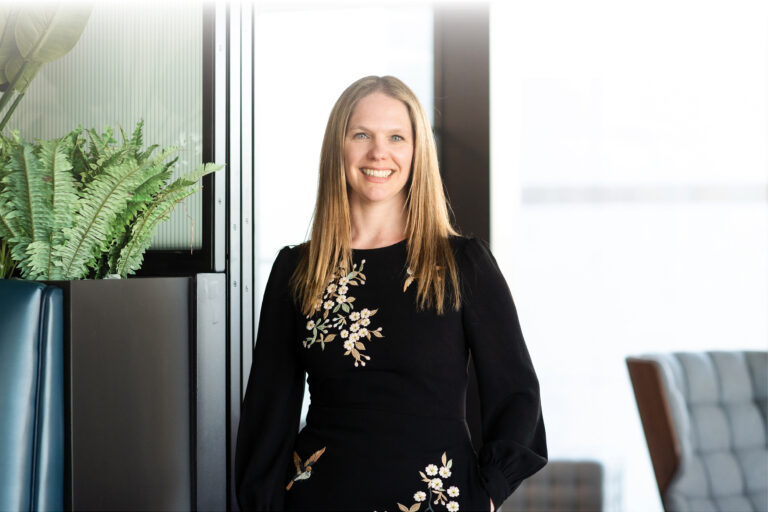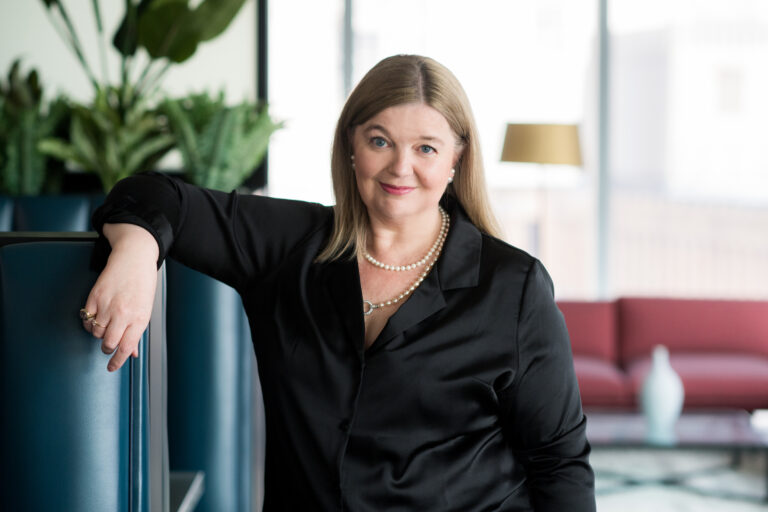

Dr Michelle Pratt in conversation with Barbara Niemann Fadani, Attorney-at-Law from Boult’s Munich office.
MP: Hi Barbara, thank you for taking the time to talk with me today. I’m very interested to hear about your experience as a key part of our German team. My first question relates to how qualifying as an Attorney-at-law in Germany, differs from qualifying to be a patent attorney or a trademark attorney.
BNF: Thank you Michelle. Well, becoming qualified in Germany is slightly different to the UK. There’s no differentiation between a barrister, solicitor or attorney at the qualification stage – so my legal qualification covers all three.
MP: I see – so is your academic background in law, or do you have a scientific background?
BNF: No – in order to do what I do in Germany, you have to have full law degree, then undertake two years of training with a judge. Only then are you qualified. It’s all the same method, whichever route you subsequently take. Honestly, it’s a very long, very difficult process! In Germany, we qualify across all forms of law. Criminal law, admin law, commercial, family law – everything imaginable.
MP: Am I correct in thinking that undergraduate degrees are longer in Germany?
BNF: Yes – they take between four and six years.
MP: You’re certainly extremely well-qualified. Could you practice other areas of law, if you wished to?
BNF: I could – but I haven’t looked at those other areas in 30 years! I have the training, of course, but case law continues to develop so I would be quite out-of-date. I have a rough idea, but couldn’t really advise properly. You need that day-to-day expertise to be a legal expert.
MP: Given that breadth of expertise, why did you settle on a career in trade marks?
BNF: I was always interested in IP. And not just trade marks, I’ve always been very interested in copyright and designs as well. I have to say that family and criminal law was never really the right setup for me. Instead, I got into intellectual property fairly early and did work experience with a lawyer, who handled a lot of copyright and trade marks issues during my studies. When it came to choosing my specialisation during qualification, I chose copyright so it has always kind of been there. I then went into a firm with a big trade mark practice right after qualification and was set from there.
I would say that an advantage of working in trade marks is that there is such a broad client base. It is fascinating. Not every day is the same because one day I might have to have a really deep understanding of software, the next I might need to advise on how medical devices are distributed and on their potential consumer base.
MP: In both the patent and trade mark attorney professions you’re always learning – continually stretching yourself.
BNF: Yes, very much.
MP: What are you most proud of in your career?
BNF: Oh my… A difficult question. Perhaps I could only say the wrong things – sarcastically, I suppose that I’m still here, still going! But no, it’s probably that I’ve managed to work in different jurisdictions and have gathered some fantastic international experience throughout my career. There can be downsides to that approach, but in a personal way and a professional way it has given me fantastic experience and has kept things very interesting.
MP: What does your practice look like day-to-day?
BNF: I mainly cover EU and German trade mark work. That can actually come in very different shapes and sizes, depending on how the case is structured, who I’m working for, if I’m the direct contact for the client, or if I’m advising on particular German-law aspects of a wider case.
MP: Are any two days the same?
BNF: No! Well, I mean, yes – the day is the same basically in terms of structure and there are typical activities which can be the same. But the cases and clients I’m exposed to are so different and that makes it very varied. There’s always new aspects, industries and comparisons to be drawn across specifications. I love getting to go into detail to learn things about a product. There are some days which are absolutely crazy when we’re working with infringements or appeals – which can be full on and exciting.
MP: I often find I start the day with a day plan– but it very rarely works out in practice!
BNF: Oh, absolutely.
MP: Do you have any advice you would give to your former self?
BNF: Learn to play the guitar and become a rockstar.
MP: Amazing. Can you play the guitar?
BNF: No… I was very good and followed my mum’s advice to focus on my studies! If I did have some advice, seriously, it would be to be less impressed by loud people and by big egos.
MP: That’s great advice, but can be something that’s perhaps quite hard to do.
BNF: In your younger years definitely – and certainly when I was starting out. But times have changed. I’ve been in this business now for 30 years. When I started, it was a very different situation; maybe it’s a little different these days.
MP: I can appreciate that. What skills do you have that make you good at your job?
BNF: I think… a certain ability to make clients trust my advice. Maybe that’s just more due to seniority these days, but I think it stands. I think I’m good at taking complex situations, describing them and guiding clients as to where they need to go to navigate them. Especially in chaotic and complex situations – which can be quite common when you’ve got proceedings spanning different countries. I’m very structured in the way I break legal concepts down, I think, which can hopefully help non-legal folk can see what is important and what needs to be done to get the right resolution.
MP: And what is your favourite part of the job?
BNF: What I really love doing is writing observations on other applications. I like taking them apart; I’m a litigator at heart. I love that – perhaps more in the written format, rather than in a court room. Picking them apart with words is certainly satisfying.
MP: You certainly sound busy!
BNF: I am!
MP: Do you travel much, given the international nature of your practice?
BNF: I used to, between UK and Germany when based in UK. Nowadays, I’m based in Germany and just occasionally travel for work in London.
MP: You have a very international practice, I can see that. How many languages do you speak?
BNF: I speak German, English, Italian, some French and some Spanish. I did English and French at school, learned Spanish at University and married an Italian and lived in Italy for 15 years.
MP: What’s the best place you’ve lived..? Is there one place you prefer?
BNF: Well I wouldn’t want to compare countries – but cities… I’ve lived in Milan, Munich and London and they all have aspects I love and aspects I dislike. I love London for the theatre and the culture, but I did dislike the stress, the expense and the distances you need to travel between work and home. Milan has a wonderful lifestyle.
MP: – and a lovely climate!
BNF: True – but summer is tricky with the heat. As for Munich – it’s small, but is a lovely place to live. I’m not being drawn into a decision, though! I don’t think I would want to choose.
MP: That’s fair enough. Very diplomatic of you. Thank you so much for your time Barbara. It was an absolute joy to speak to you. If I have any trade mark matters in Germany I will certainly pass them to you and your team.
BNF: Thank you – I was surprised to be asked! I’m not used to being in the spotlight, but it was lovely to talk.
If you would like to read more about Barbara and her practice, her profile can be found here and you can contact Barbara at bnfadani@boult.com. Until next time, thanks for reading our conversation with Barbara. We’ll return soon with another entry in our “Conversation with…” series.